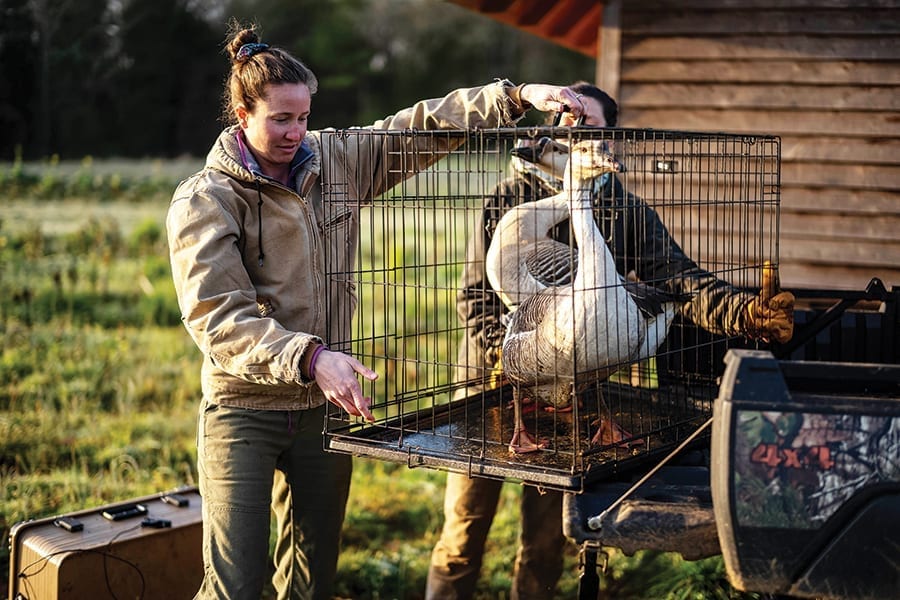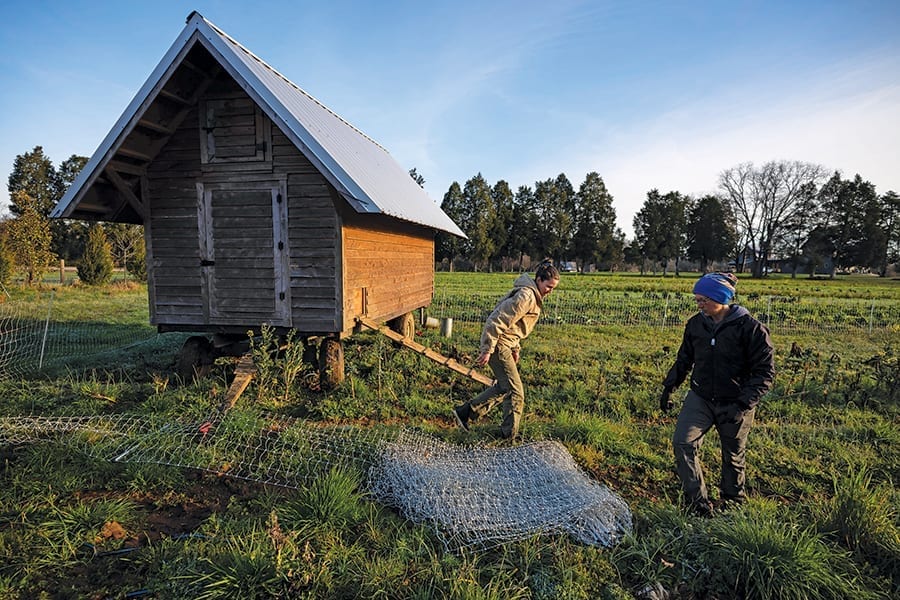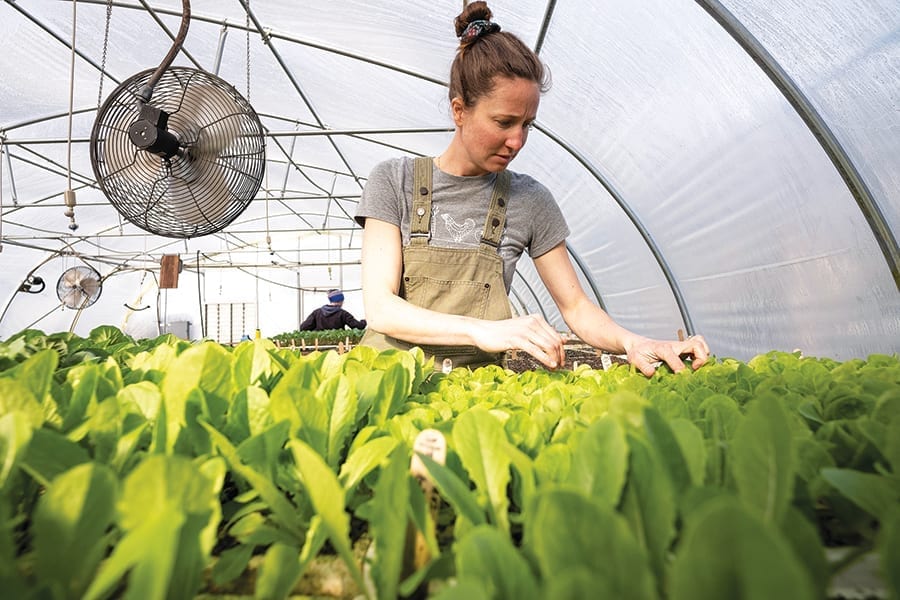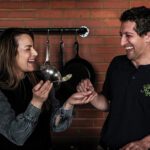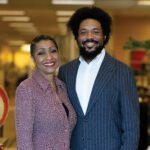From the ground up
May 1, 2020
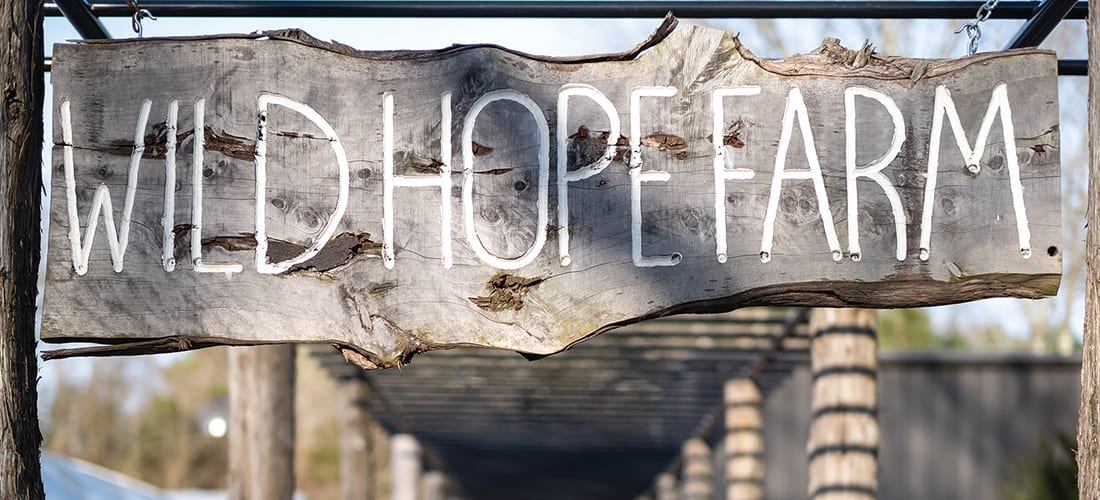
The Belk family’s latest venture — an organic farm — is an experiment in bringing local healthy food to Charlotte while inspiring young farmers.
by David Mildenberg • Photographs by Zan Maddox
Forty-five miles south of downtown Charlotte, the same family that filled generations of North Carolinians’ closets with sweaters, coats and shoes is slowly working its way into local kitchens, one head of broccoli at a time. From late April through late summer, the Belks’ Wild Hope Farm delivers a couple hundred containers filled with organic vegetables to customers weekly, while selling additional produce at the Matthews Community Farmers’ Market.
The business is about healthy food, nutrition, restoring the quality of soil and other positive karma. The farm’s “connector,” Katherine Belk, 28, never worked full time for the company started by her great-grandfather William Henry Belk in Monroe in 1888. But in her third summer overseeing the farm, she’s displaying the work ethic and messaging of a veteran entrepreneur.
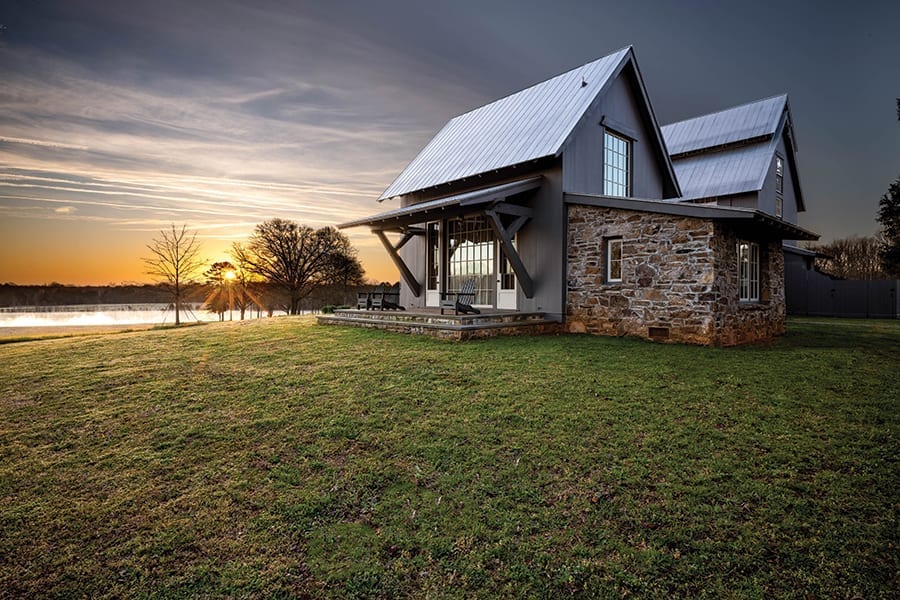
“We want to be financially sustainable, environmentally sustainable and socially sustainable,” she says. “A lot of farms our size might be relying on migrant workers that they house and pay a very little amount. But we want to pay a living wage and build a model for a farm that is going to be around for decades — not something you do for three years, burn out the land and move on.”
Katherine and her family want their farm to help expand the local food movement in the Charlotte area, which is catching up with other cities already embracing the trend. The goal is to promote healthier diets and lifestyles and a renewed respect for land.
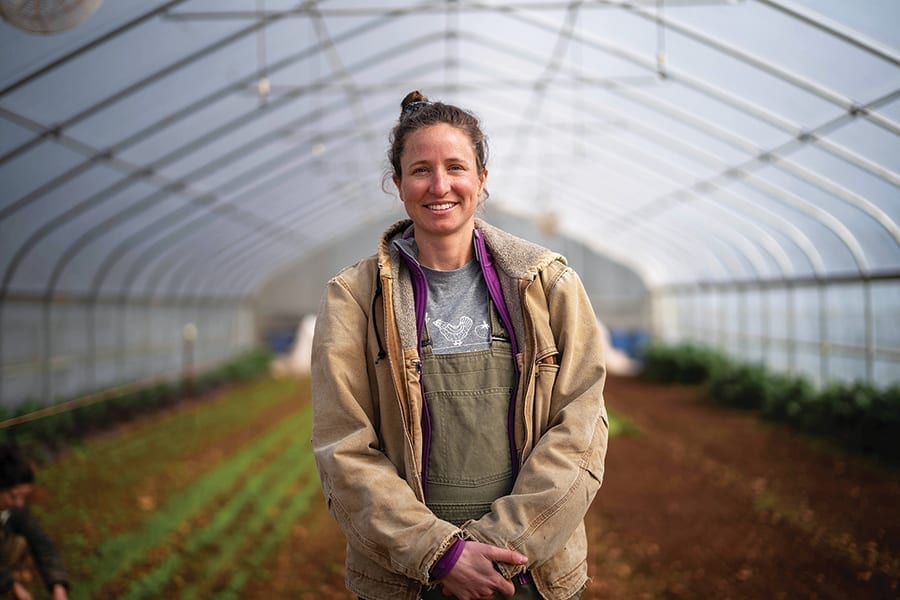
Katherine Belk 
Shawn Jadrnicek 
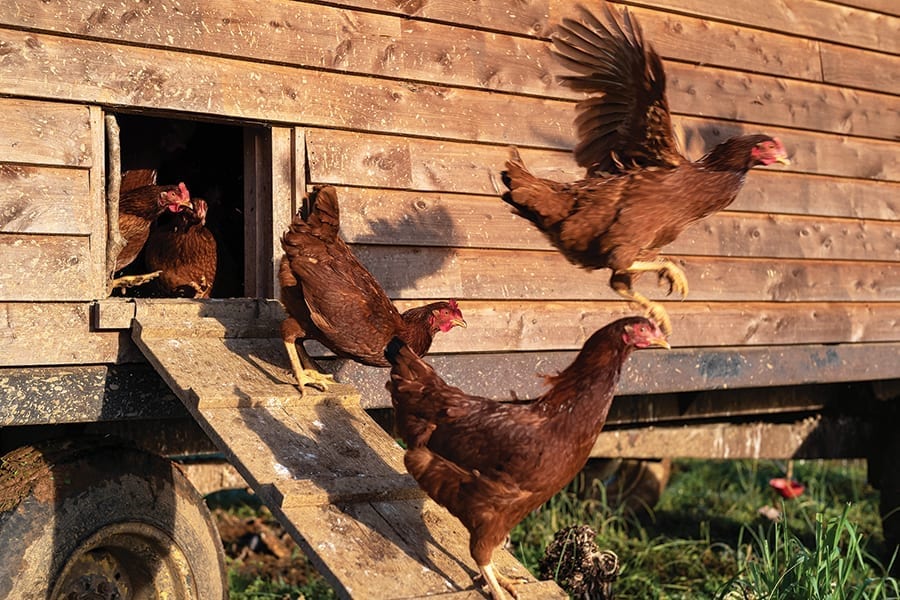
Katherine was working at a product design firm in Boston in 2016 when her parents, Tim and Sarah, told her about their plans to create an organic farm on part of the 200 acres they’d bought in 1996. The Rodman area of rural Chester County has a picturesque feel that is hardly a second-home hot spot, but the Belks liked its close proximity to Charlotte. Tim stepped down as CEO of Belk in July 2016, a year after the family sold the business to a New York private-equity firm. He had succeeded his uncle, former Charlotte Mayor John Belk, who was CEO for 50 years. Tim’s father, Tom, was president and oversaw merchandising at the department store chain until his sudden death at age 71 in 1997.
Katherine attended boarding school in Delaware and, like her father and three of her four siblings, Williams College in Massachusetts. She studied business and art at the top-ranked private college, graduated in 2013 and then headed 140 miles west to Boston.
It was Sarah’s vision to expand beyond the burgeoning flower business that she had started at the farm and add vegetables, Tim says. He calls his wife the “grower” in the family. She’d learned much about local agriculture by helping start a volunteer food stand that operated from 2009 to 2015.
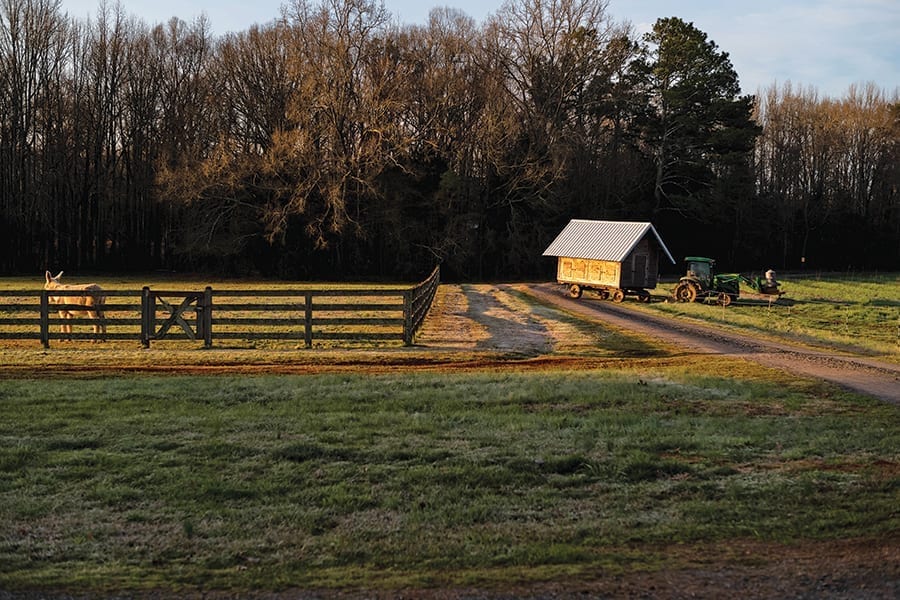
The couple visited various farms and searched nationally for a manager before hiring Shawn Jadrnicek, who at the time was operating Clemson University’s student-run organic farm. Among his special interests is no-till farming, which conserves water, improves the soil’s organic matter, and creates significant fuel and labor savings by limiting plowing. He has impressed the Belks with his craftiness, such as piling compost on top of a concrete slab embedded with coils. In winter, the composting process warms the coils and, in turn, heats the farm’s greenhouse, reducing the need to buy power.
With Jadrnicek focused on the field, the Belks needed someone to sell and distribute the produce.
“I initially told my parents, ‘Good for you guys to do something together post-retirement,’ and that was about it,” Katherine says. “But then I thought, you know, I’d become pretty stuck in my ways. I was ready for a change.”
Her parents encouraged the move with some trepidation. Rural South Carolina is a different place than Boston. “We asked, ‘Did we send her off to college so that she could work for the family farm?” Tim Belk says. “But then I thought, It’s a startup, an early-stage industry, it’s organic farming, and we’ll get to work with our daughter and maybe get to coach her.”
Katherine’s husband, Peyton, had grown up on a horse farm in Virginia and was also ready for a new opportunity. “He was super supportive,” she says.
The business kicked off in mid-2018 with 3.5 planted acres and about 100 customers signed up for weekly produce drop offs. The first year was the hardest, like any small business.
“Sean and I were working around the clock just to get things started,” Katherine says. They ramped up to 6.5 acres in 2019 and 12 acres this year. Carrots, garlic, radishes, turnips, greens, cabbage, peppers, watermelon and okra are among the 75 varieties of vegetables and fruits grown at the farm. In mid-April, the farm had sold out of its 340 farm shares: Subscribers pay $22 to $32 a week for deliveries that include a basket of fresh produce from late April through November.
Rachel Klein leads the farm’s community share program. She describes her job as “making sure that our customers get a variety of stuff and a better value than if they went to the farmers market and bought everything. Klein says the Carolina climate of extreme summer heat and too much or too little rain makes Wild Hope more challenging than her previous work at a 15-acre farm in the California foothills.
“We keep a high-quality standard, but the whole idea of [community-supported agriculture] is that customers are accepting what happens with the farm,” Klein says. “They understand that if one week we don’t have broccoli, we’ll supplement it with a lot of kale.”
Tim says he views the farm as a promising project that is benefiting from growing interest in healthier food.
“We’re comparing notes with other farms. We want to know if a farmer can generate enough income to pay a competitive wage so that a worker could send their kid to college. That’s what we would like to show,” he says. “Hopefully it is a business model that can be replicated. But first we have to prove it works.”

Proof is key for the former CEO, says his daughter. “He’s a project manager to the max,” she says. “He always sets a deadline, and then we work on it. That’s definitely his skill set, so we let him keep track of timelines and we focus on getting the work done.”
The coronavirus pandemic is sparking “incredible growth and interest” in the demand for local food across the state, says Nancy Creamer, an N.C. State University professor of horticultural science.
The Belks are joining at an interesting time for Charlotte’s local food ecosystem. The increasing, pre-coronavirus popularity of the Queen City’s chef-driven restaurants, many of whom rely on fresh local farm products, has bolstered demand among consumers, says Chad Blackwelder, a food service marketing specialist at the N.C. Department of Agriculture. “Without the support of local chefs, I am not sure that customers and consumers would have local farmers on their grocery shopping and menu planning radar,” he says.
Unlike other metro areas that were quicker to recognize the benefits of local agriculture, many Charlotte residents tend to value convenience over quality, says Katherine, who is expecting her first child in August. “They don’t necessarily make a connection to the importance of how we treat the soil,” she says. “But it really does matter: Don’t you want your kids to be able to enjoy this world too?”
The Wild Hope folks view their farm as both a business and an educational opportunity. Next year, they hope to add pick-your-own blueberries and events, including discussions of farming practices or just fun musical or dinner gatherings. “We want this to be a model of how you make this work to inspire other younger farmers,” Klein says.
It’s also inspiring to nascent baby boomer farmers like Tim. “We’re on a steep learning curve, but we think and hope that we are building a brand around organic vegetables in the Charlotte market. It’s very early stage for organic local farms, but we are excited about working with others to make this work.” SP

